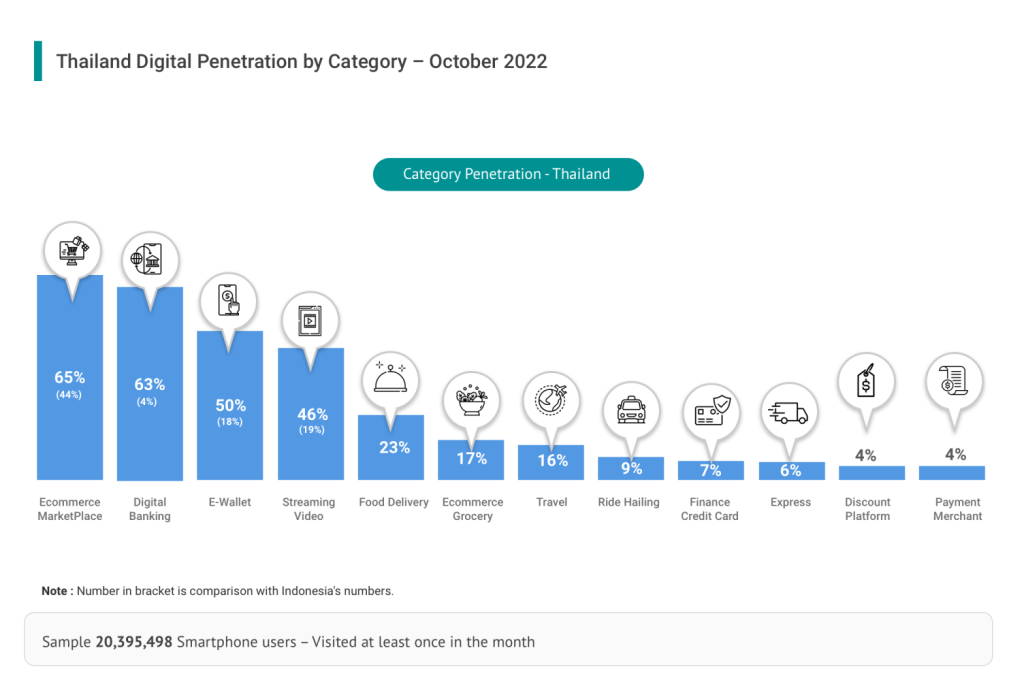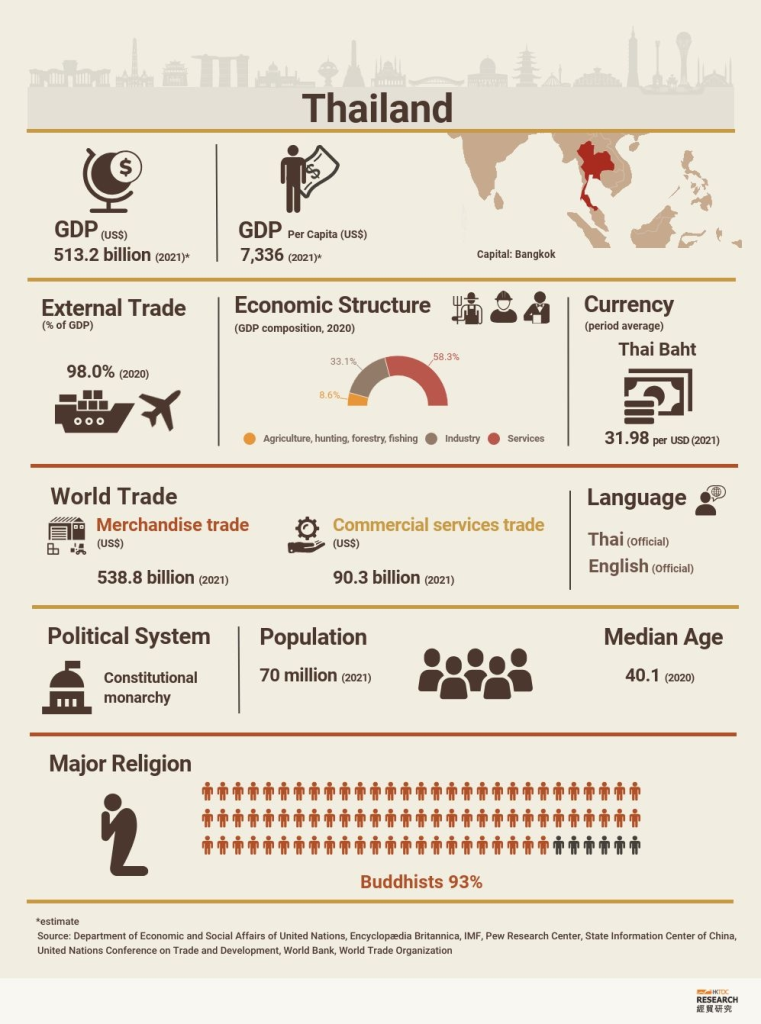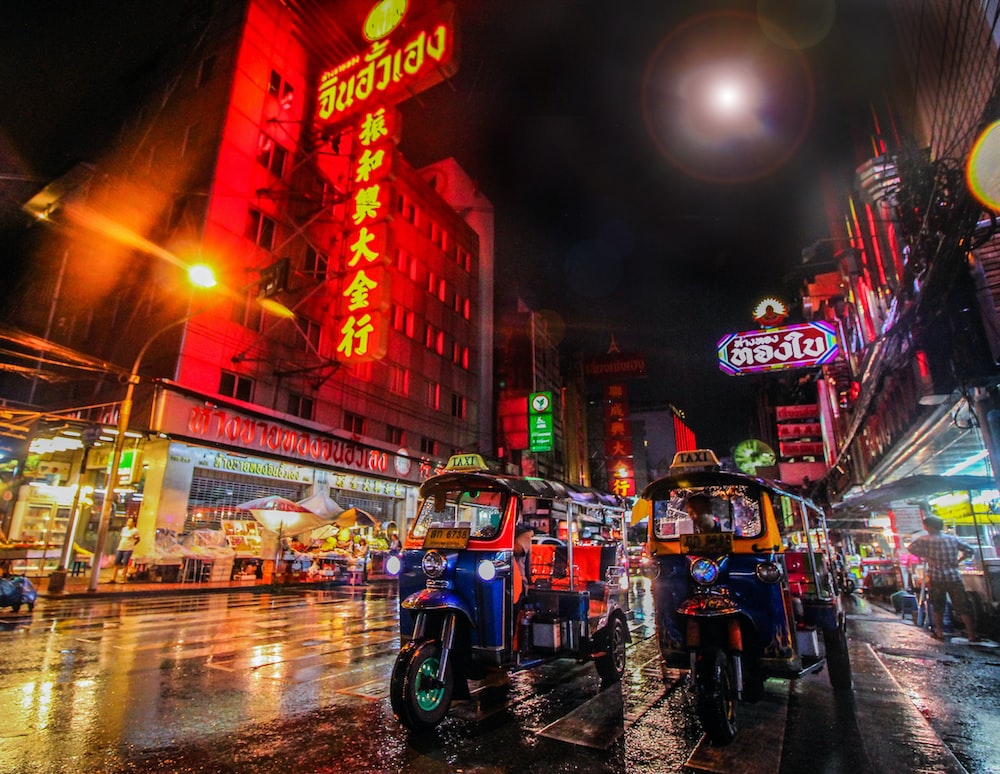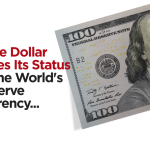KXCO loves Thailand for its captivating blend of rich culture, warm hospitality, and breathtaking natural beauty. The country’s vibrant cities, such as Bangkok and Chiang Mai, offer a bustling atmosphere with a perfect juxtaposition of ancient temples and modern skyscrapers. The Thai people’s genuine friendliness and welcoming nature create an inviting environment for travelers. From the stunning beaches of Phuket and Krabi to the lush jungles of Chiang Rai and the tranquil mountains of Pai, Thailand’s natural landscapes offer endless opportunities for exploration and adventure. Moreover, Thailand’s delectable cuisine, with its tantalizing flavors and aromatic spices, never fails to delight KXCO’s taste buds. The country’s colorful festivals, like Songkran and Loy Krathong, showcase the vibrant spirit and deep-rooted traditions of the Thai people. With its charm, diversity, and captivating experiences, Thailand holds a special place in KXCO’s heart.

KXCO loves Bangkok as a place to base its company for several compelling reasons. Firstly, Bangkok offers a dynamic and bustling business environment that fosters innovation and growth. The city serves as a regional hub for various industries, attracting a diverse pool of talented professionals and creating abundant networking opportunities. Moreover, Bangkok’s strategic location within Southeast Asia provides easy access to emerging markets and enables seamless business connections across the region. The city’s modern infrastructure, including world-class transportation and state-of-the-art office spaces, further enhances the convenience and efficiency of operating a company in Bangkok. Additionally, Bangkok’s vibrant lifestyle, vibrant cultural scene, and renowned culinary delights contribute to a high quality of life for employees, making it an attractive destination for talent acquisition and retention. Overall, Bangkok’s combination of business-friendly environment, connectivity, and quality of life make it an ideal location for KXCO to establish and thrive as a company.

KXCO Guide: Thailand, a vibrant Southeast Asian nation, has experienced remarkable economic transformation in recent decades. The modern Thai economy is a dynamic blend of manufacturing prowess, robust services, flourishing tourism, and a resilient agricultural sector. This article provides an overview of the key features, strengths, challenges, and future prospects of the Thai economy, shedding light on its journey towards sustainable and inclusive growth.
- Diversified Economic Sectors: The Thai economy boasts a well-diversified set of sectors that contribute to its growth:
- Manufacturing: Thailand has emerged as a manufacturing hub, attracting global investments in industries such as automotive, electronics, and machinery. The sector’s integration into global value chains has strengthened its competitiveness.
- Services: The services sector plays a crucial role, contributing significantly to GDP. The tourism industry, in particular, has flourished, with Thailand being a top tourist destination known for its rich cultural heritage and natural beauty. Additionally, financial services, telecommunications, and digital services have witnessed rapid expansion.
- Agriculture: Despite the shift towards industrialization, agriculture remains a vital sector. Thailand is renowned for its agricultural products, including rice, rubber, fruits, and seafood. Government initiatives aim to enhance productivity, sustainability, and rural development within this sector.
- Government Initiatives and Reforms: The Thai government has implemented various policies and reforms to fuel economic growth and enhance competitiveness:
- Economic Development Plans: The government has devised comprehensive strategies to promote economic development, attract investments, and create employment opportunities. These plans focus on infrastructure development, innovation, and human capital development.
- Trade Policies and Regional Integration: Thailand actively participates in regional economic initiatives, such as ASEAN and free trade agreements, fostering trade liberalization and enhancing access to regional markets.
- Investment Promotion: The government offers attractive incentives and streamlined processes to attract foreign direct investment (FDI) across sectors, contributing to economic expansion and technology transfer.
- Tax Reforms: Efforts to reform the tax system have been made to incentivize businesses, simplify procedures, and create a favorable investment climate.
- Challenges and Priorities: The modern Thai economy faces several challenges that warrant attention:
- Income Inequality: Disparities in income distribution persist, necessitating measures to bridge the gap and ensure inclusive growth for all segments of society.
- Environmental Sustainability: Thailand grapples with environmental concerns, including pollution, deforestation, and water management. Embracing sustainable practices and green technologies is crucial for long-term prosperity.
- Demographic Shifts: An aging population poses challenges for labor productivity, social welfare, and healthcare. Addressing these demographic changes requires innovative policies and investment in human capital.
- External Vulnerabilities: The Thai economy is exposed to external shocks and global economic fluctuations. Building resilience through diversified markets, flexible exchange rates, and prudent fiscal management is essential.
- Future Prospects: Despite challenges, the modern Thai economy holds promising prospects:
- Economic Diversification: Thailand aims to move towards high-value-added industries, innovation-driven growth, and digital transformation. This diversification would reduce reliance on traditional sectors and enhance competitiveness.
- Regional Connectivity: Thailand’s strategic location and participation in regional economic initiatives position it as a hub for regional connectivity, trade, and investment.
- Sustainable Development: Emphasizing sustainable practices, renewable energy, and eco-tourism can contribute to long-term environmental preservation and attract responsible tourism.
- Human Capital Development: Investing in education, vocational training, and skills development would nurture a skilled workforce capable of driving innovation and entrepreneurship.
Conclusion: The modern Thai economy reflects a successful blend of traditional strengths and new opportunities. By leveraging its diverse sectors, implementing effective policies, and addressing challenges,









